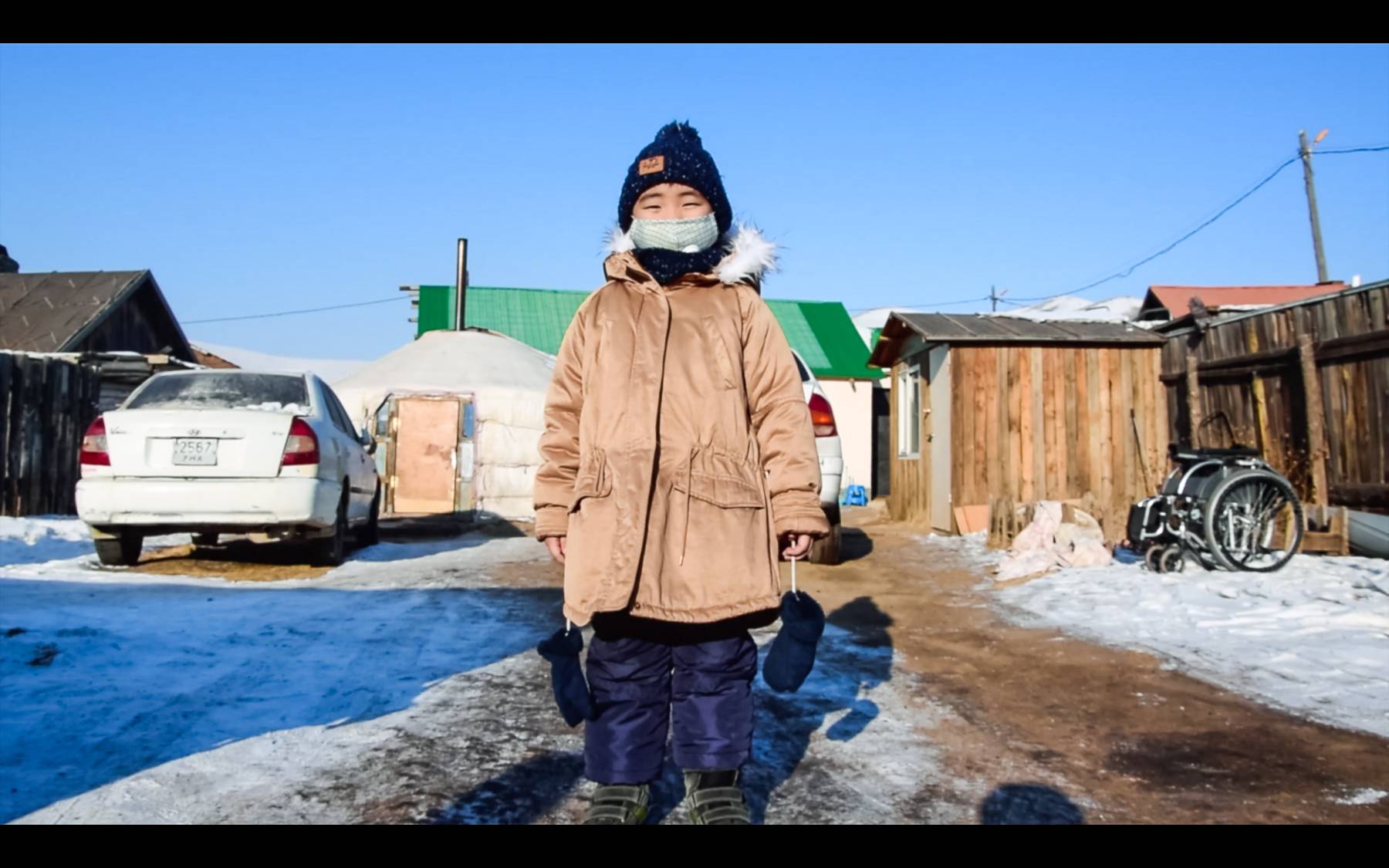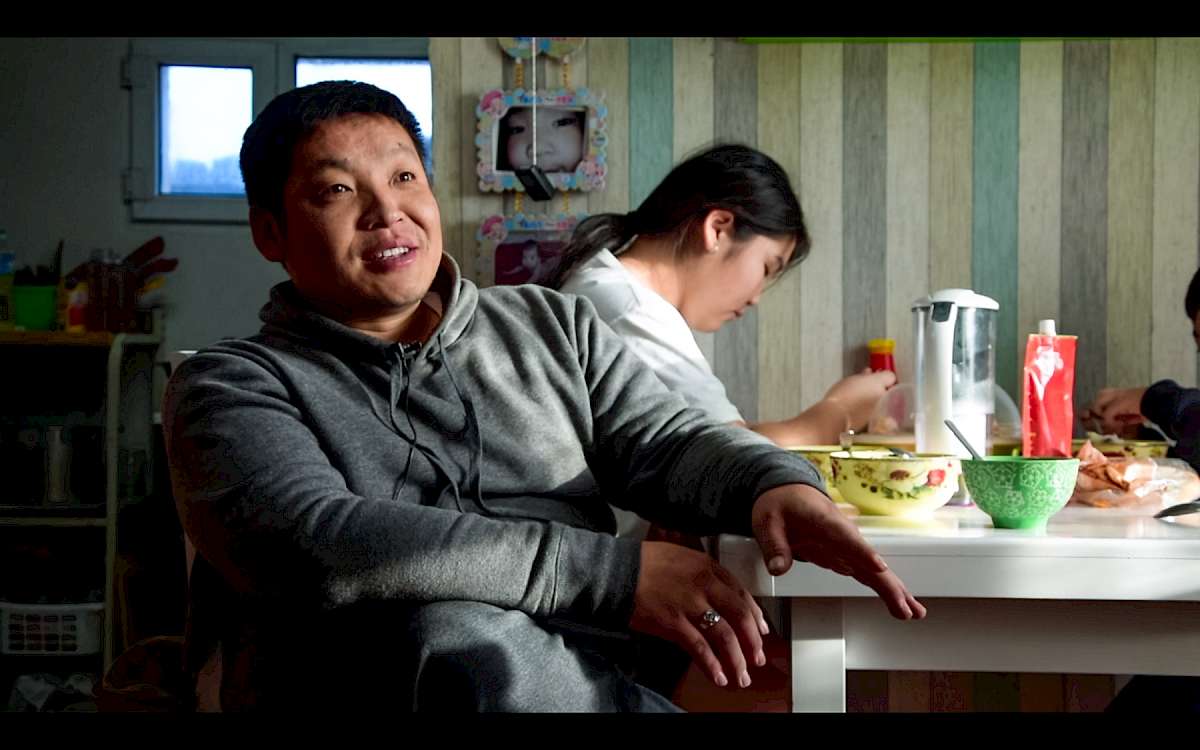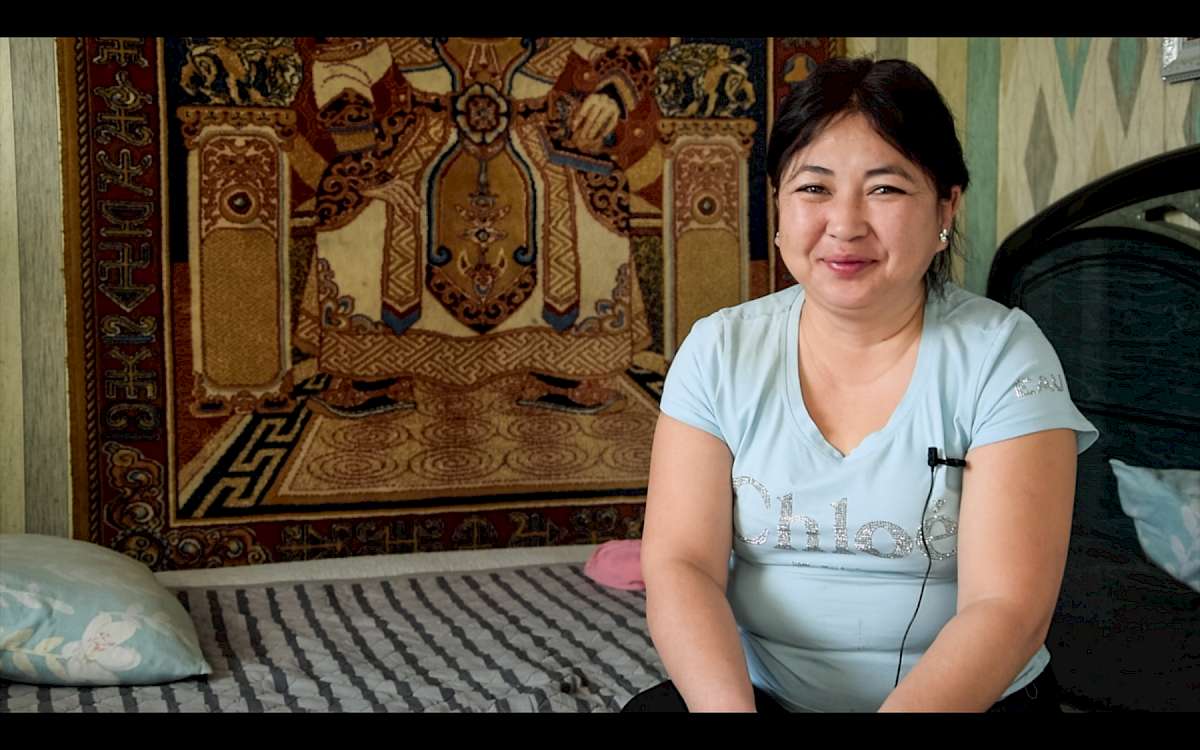
Air pollution in Ulaanbaatar, Mongolia’s capital city, is facing a public health crisis. However, the SWITCH-Asia Switch Off Air Pollution (SOAP) project aims to improve the situation by reducing coal consumption in the city’s ger district, as the use of coal for heating homes in these areas is the main source of the city’s air pollution.
Households living in the ger area are burning tons of coal every winter, creating 60% of all air pollution in the city of Ulaanbaatar, the coldest capital in the world. This has severe health implications for the entire population, especially children who suffer the most- resulting in serious illness due to weakened immune system that’s caused by poor air quality, explained Pierre Yves, EU Cooperation Team Leader in Mongolia.
According to data from AirVisual, Ulaanbaatar consistently ranks among the most polluted cities on earth during the winter.
“We used to burn two bags of raw coal a day, or 60 bags a month, but now we have completely stopped using coal and we have switched to electricity,” says 39-year-old Munkhzul, a resident of Ulaanbaatar’s ger district.
Munkhzul and his family moved from a ger to their small, wooden house five years ago. But the house was not properly insulated, and they burned raw coal during Mongolia’s cold winter months to keep warm.
Through this project, families like Munkhzul's receive assistance insulating their homes in an effort to reduce air pollution and the associated impacts to their health, said Beatriz Maroto Izquierdo, Country Director at Geres Mongolia.
Munkhzul’s family now uses an electric heater to heat their small house, and they plan on sealing the windows and the door before the coming winter to further reduce heat loss.
Toxic indoor air and the risk of burns
According to UNICEF, air pollution can cause diseases such as pneumonia, which kills 920,000 children under the age of five every year. In Mongolia, toxic indoor air is as much of a challenge as outdoor air pollution. Professor Jay Turner of Washington University in St. Louis, USA, noted during a UNICEF-sponsored science and policy dialogue that stove emissions are a major factor in indoor air quality in Mongolia.
Munkhzul adds, “Our guests always compliment us, saying that the house looks clean, that there is no dust. Since we insulated our house, it’s much cleaner and we do not have to worry about the safety of our children; we no longer worry that they will get burned.”
In Mongolia, severe burns are common among children. A recent community survey of 900 caregivers of children under the age of five revealed that 27 percent of the children had sustained burns; 70 percent of them lived in a ger.
Saving money for the future
In addition to improving the health of Ulaanbaatar’s residents, the goals of the SWITCH-Asia SOAP project include boosting the financial situation of the city’s families. By saving money on heating costs, parents can invest more in their children’s future.
 “I like that I spend less time cleaning the dust (from raw coal) or burning coal to heat the house,” says Ariunzaya, Munkhzul’s wife. “We used to spend 340,000 tughriks a month on coal; now we pay half that in electricity,” she adds. Ariunzaya also notes that the money her family saves on energy costs is being used to fund her children’s education.
“I like that I spend less time cleaning the dust (from raw coal) or burning coal to heat the house,” says Ariunzaya, Munkhzul’s wife. “We used to spend 340,000 tughriks a month on coal; now we pay half that in electricity,” she adds. Ariunzaya also notes that the money her family saves on energy costs is being used to fund her children’s education.
Training brigades to help communities
In June 2019, one of the partners of the project, the Mongolian National Construction Association (MNCA), trained 13 brigades – small collectives of construction craftsmen – on how to insulate houses using cost-effective materials that are available on the Mongolian market. MNCA also trained approximately 30 people on construction standards, insulation practices, and cost-effective methods of insulation.
“We have trained 13 brigades as energy advisers so that they can teach households in ger districts about energy efficient insulation. These brigades help families in ger districts insulate their homes in energy efficient ways, using quality, low-cost, and locally available materials," says Khulan, Executive Director of the MNCA.
PIN and Geres, along with other partners, aim to reduce air pollution in Ulaanbaatar’s ger areas through measures including improved energy efficiency for homes; awareness-raising initiatives; financial intermediation; and training and technological support for micro-, small- and medium-sized enterprises and households. It is estimated that over the next two years, the SOAP project will help retrofit 1,000 homes to be more energy efficient, saving 1,200 tons of coal per household and significantly reducing air pollution in Ulaanbaatar.
How are we helping in reducing air pollution?
In a consortium led by GERES and People in Need (PIN) with partners MNCA and BEEC, supports households in the ger district, MSMEs of the construction sector, local authorities and institutions and indirectly the entire population of the capital city. Households targeted are selected based on their motivation to retrofit their house sustainably, if they are facing high energy expenditures and with a priority given to vulnerable and women headed households. MSMEs in the construction sector include small scale construction companies, retailers of energy efficient (EE) construction materials and stoves and those that provide sustainable working opportunities to individuals. They are also selected based on their willingness to register officially and to adhere to MNCA. The consortium also works with the Municipality of Ulaanbaatar City, Ministry of Environment, and Ministry of Urban Development and Construction and coordinates with other government actors.
Authors: Tim Jenkins and Tina Puntsag, People in Need Mongolia
Photo credits: People in Need Mongolia
Also featured on European Commission DG DEVCO website
For more information on this initiative contact:
Odonchimeg.I,
Geres Mongolia Communications Officer
T: +976-95007392
Email: [email protected]
The project is funded by SWITCH-Asia, Abbé Pierre Foundation, Czech Development Agency, and French Development Agency


